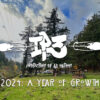|
Getting your Trinity Audio player ready...
|
On February 27th, 2024, Land Defenders in Lawton, Oklahoma and members of Westwin Resistance sat in on a bi-weekly city council meeting to oppose the construction of a new cobalt, nickel, and manganese refinery by Westwin Elements, a company that have used deceitful and shady business practices to skirt Free, Prior, and Informed Consent by Tribal Nations. After a series of backroom discussions between Westwin Elements, the City of Lawton, and the Lawton Economic Development Corporation, they agreed to move forward with the 40 acre pilot plant, a deal that was finalized and approved in the summer of 2023. In a video posted to the Westwin Elements Website, KaLeigh Long, Founder and CEO of the company describes the project as “the most patriotic and profitable project that any American could participate in,” that they are “building the only nickel and cobalt refinery in the United States, and these are critical metals that are very important to our national security interests, economic interests, environmental interests.” What she doesn’t mention, however, is that her company is new to the refining industry and that their inexperience working with toxic elements is a disaster waiting to happen. Among the concerns of citizens and Indigenous groups in Lawton, the project lies on sacred burial sites of Kiowa, Comanche, and Apache, and presents a wide range of environmental, public health, and public safety risks she has ignored to fast-track construction of the site.
While Westwin Elements blazes forward with their toxic and hazardous cobalt mining project, we know that their claim of renewable energies are a form of Green Colonialism in disguise. In their own words, the company exists to serve the financial interests of investors, to further militarize the United States government, and to extract toxic and hazardous materials in areas that historically compromise the health and wellbeing of Indigenous and marginalized peoples. The Westwin Elements cobalt refinery is no exception. While they sell the idea of a just transition in the form of renewable energy, it comes at the expense of finite resources that when extracted and refined compromise land, water, people and the planet. In a Public Health Statement released by the Agency for Toxic Substances and Disease Registry, exposure to cobalt can include lung disease, heart failure, ecological impacts, carcinogenic pollution, and these symptoms are exacerbated when exposure comes from mines and refineries. In other words, it’s not just a matter of what exposure to cobalt can do to public health and the environment, but when? As we’ve seen with United States energy projects in the past, including nuclear energy plants, fossil fuels drill sites, hydroelectric power plants and dams, and now cobalt and nickel mines and refineries, these projects create long term and irreversible consequences passed down to our next generations in exchange for short term financial gains by corporations and their investors.
According to data cited in Australia’s recently released State of the Environment report, “Indigenous Peoples make up just 5% of the global population, but protect 80% of the world’s remaining biodiversity.” Indigenous Peoples’ involvement in national and international negotiations for greenhouse gas reductions and climate change adaptation is essential, as they are central to environmental protection and conservation. As we witness the exclusion of Indigenous voices in the conversation of Westwin Elements in Lawton, Oklahoma, and the continuation of broken treaties that legally require Free, Prior, and Informed Consent on Indigenous lands, it is imperative that Indigenous Knowledge remain at the forefront of these decisions for both Indigenous and non-Indigenous communities alike. The Westwin Elements cobalt refinery project and those to come will have irreversible, catastrophic and lasting effects that our future generations will pay the price for, and by then they may not be able to foot the bill. To stay informed on the Westwin Elements project, Westwin Resistance, and the good work of our relatives in Oklahoma, please visit Westwin Resistance on Instagram, Facebook, and YouTube for future updates and share with your networks. Please also tap into the Westwin Resistance discussion, “Nickel, Cobalt, and “other minerals” Refinery in Kiowa, Comanche, and Apache Homelands” below.
#Landback ✊🏽🌎🌿💧
#CongoIsBleeding 💔🇨🇩✊🏾
Nic Sanford Belgard
Indigenous Peoples Power Project









